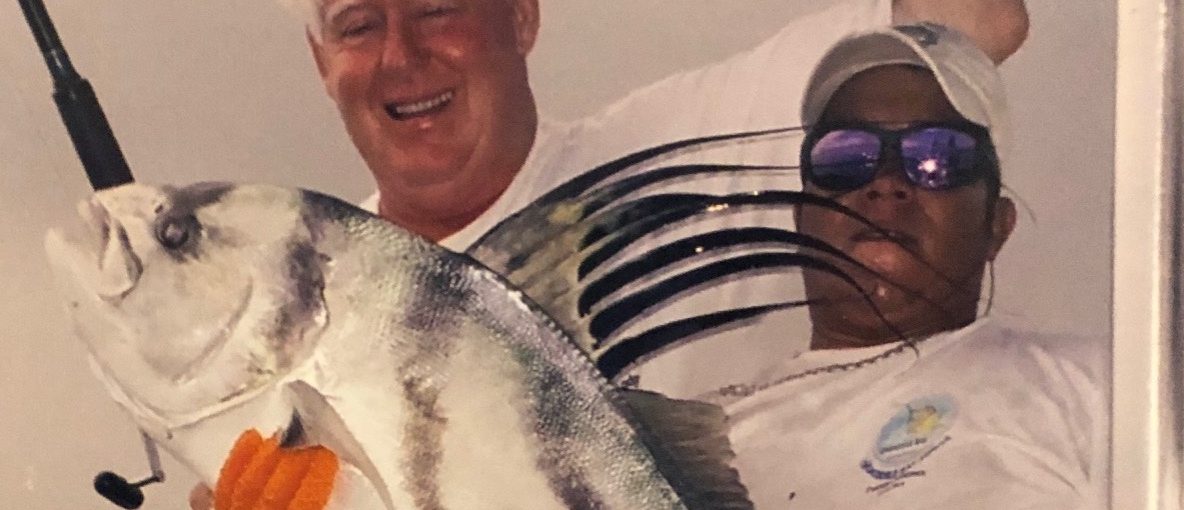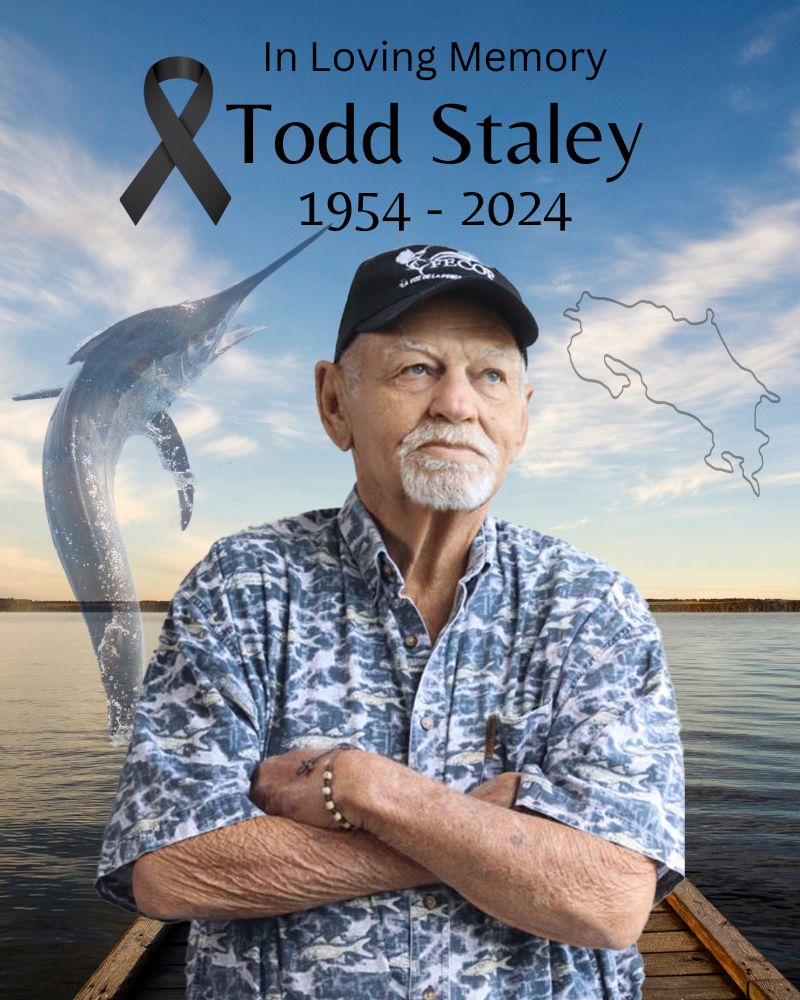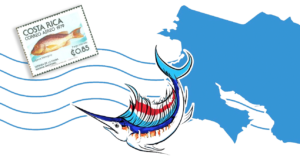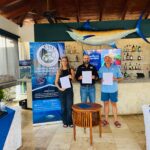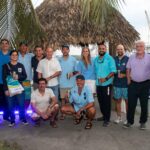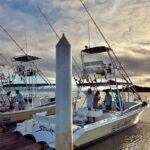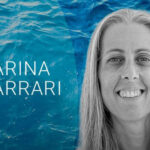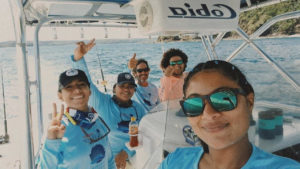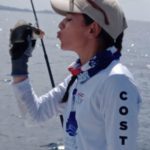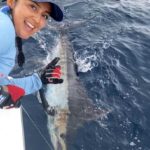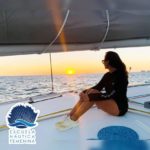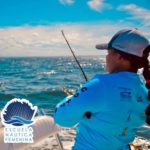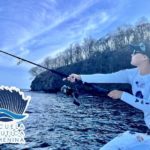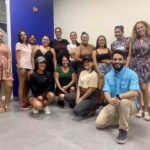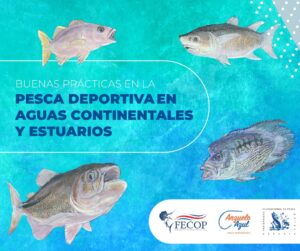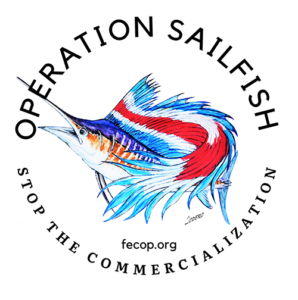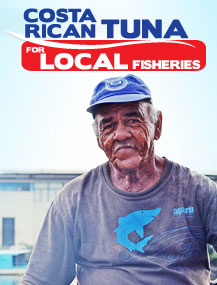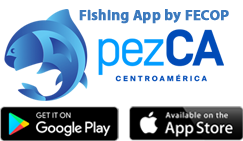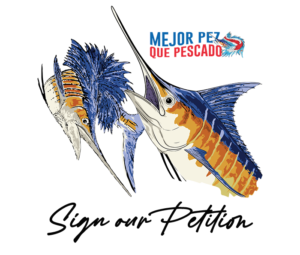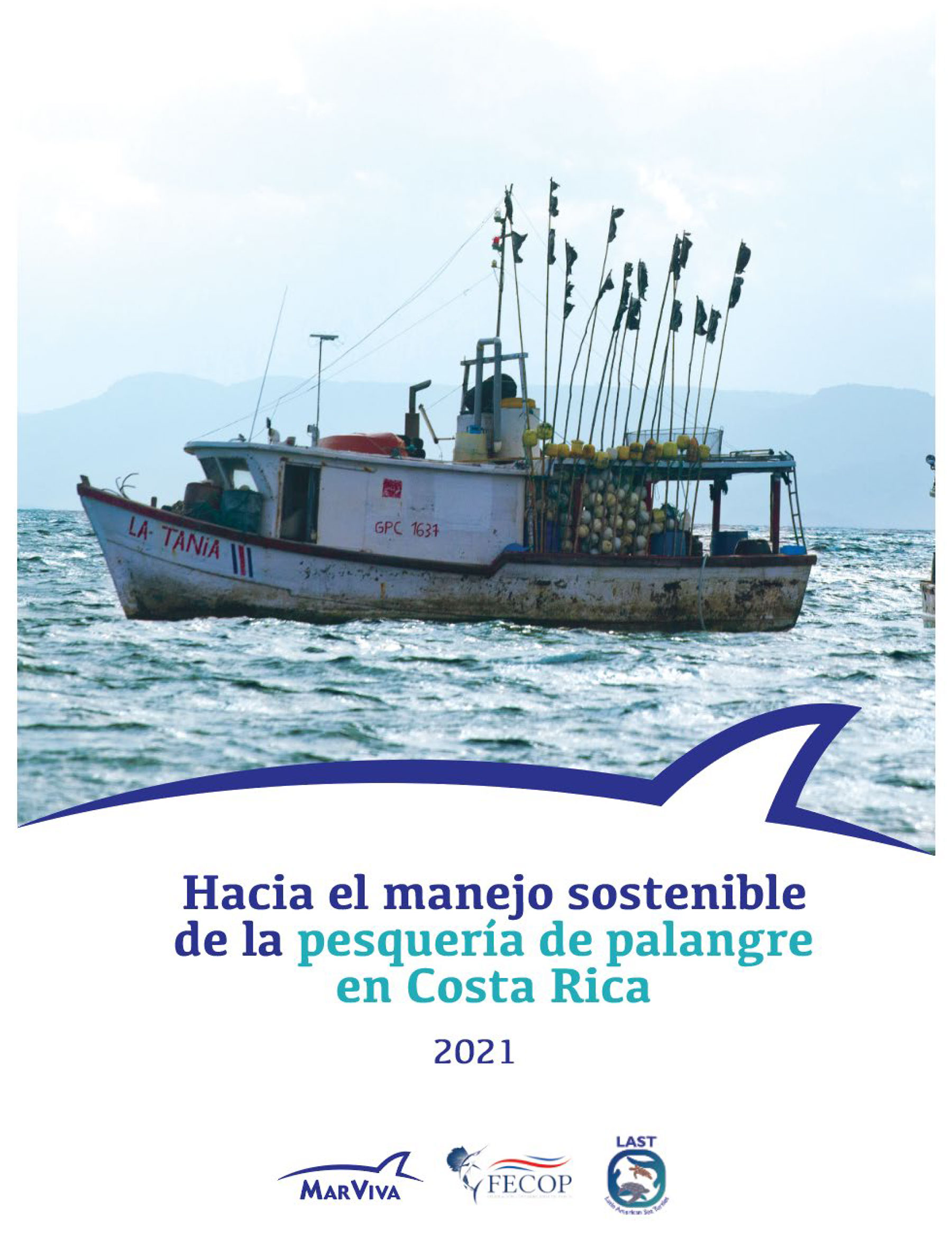The White Feather, Robin Williams (above Photo via Todd Staley.)
I have had the honor to work for two great mentors in my three decades in Costa Rica. First was owner of the Rio Colorado Lodge, Archie Fields, who cancer took from us early on April 8, 1993. Archie taught me the fishing hotel business from top to bottom, how to do business in Costa Rica, and the importance of finding good Spanish teachers.
Second was Robin Williams, founder of Crocodile Bay Resort in Puerto Jimenez, who passed Saturday, Dec. 14 after a long illness. Robin and I worked together over 20 years. Robin taught me how to take a vision in the middle of nowhere, turn it from an idea into a reality, and work around all the trials and tribulations of permits, transportation of materials, and importing products and boats from outside Costa Rica. He taught me to all this and to never lose your sense of humor.
Robin was a visionary and pioneer in the fact that he was one of the first to offer a full fishing program with a complete eco-tour package. Many said mixing anglers with nature tourists wouldn’t work. The combination worked perfectly. The two groups would talk at the resort and on their return visits, anglers would book extra days and take tours, and some nature folks fished for the very first time. Over time, Crocodile Bay Resort became so world renowned that Sport Fishing Magazine voted it the second-best place in the world to take a family fishing vacation.
People used to ask me all the time, “You work for Robin Williams?” I would laugh and say, “Yes, I work for Robin Williams, the character, but not Robin Williams, the actor.” If you hang around Costa Rica long enough, you will acquire a nickname. It is not one you choose yourself, but one given to you that sticks. The employees of Crocodile Bay affectionately called the boss Pluma Blanco (White Feather), because of his snow-white hair.
Robin and I over the years developed more of a family-type relationship, rather than boss and employee. It didn’t start out that smooth. I was the new kid on the block in Puerto Jimenez for nearly eight months before things really started to happen, while waiting for permits, boats, products, and things to clear customs and such. You could literally drive from one end of town to the other in less than a minute, and in this small space, there were three dance clubs and nearly a dozen cantinas. In other words, there was plenty of mischief for a gringo with a few bucks in his pocket.
The first year of operation, our outboard motors were blowing up like popcorn, and the boss thought the crews were abusing the motors. My job was on the line. You had a better chance of playing football with a porcupine than getting the dealer in San José to warranty an engine. Finally, the factory stepped up and said their new motors at the time could not function on the low-quality fuel available in Costa Rica.
Our road trips in search of boats or hotel equipment in the United States or Costa Rica were epic. With us, it was always a matter of he who sleeps first, sleeps. We both snored so loud that other got no sleep. Back in the beginning, it took four hours in a 4-wheel drive to get from the Pan American Highway to Puerto Jimenez. Double that if you were pulling a boat. Add a few more hours if you were pulling a big boat. Today, it is a beautiful, paved drive around the Golfo Dulce with spectacular views that takes a little over an hour.
Finally, we were ready to get started the first of June 1999. Broke ground that day with 70 employees and four small cement mixers. Robin and his good friend James Stanford looked over the construction, and I looked for fishing areas. We opened the door Sept. 15, 1999 in a record two-and-a-half months of construction time.
Robin was also a fantastic promoter. He did many trade shows, introducing thousands to what he had created in Costa Rica. He asked me to do some shows, but that really isn’t my cup of tea. I would tell him, “your job is to get people to come down; my job is to get them to come back.” I did go to one show a year with him, the American Sportfishing Association’s annual ICAST show. For years it was held in Las Vegas, but more recently was moved to Orlando.
Another annual tradition we had in Vegas was skipping the strip hotel buffet lines after we discovered the best $1 hot dog in the world at little club in a strip mall called Foxey’s. The same buxom bartender biker chick, Glenda, was there every year while we played dollar slots. She should have been working at the Comedy Store on the strip. Those hot dogs could have rivaled anything from New York or Chicago.
We returned one year, and Glenda informed us they no longer served hot dogs. It seems the State of Nevada decided the uniforms of the girls used that worked in the establishment didn’t meet the requirements to serve food. A tradition ended, which was good, because by then we had both slowed down a step or two.
Williams was also known for his generosity. Over the years, he donated hundreds of resort trips to groups like the International Game Fish Association, Coastal Conservation Association, Safari Club, the Boy Scouts, and many others to use as fundraisers. He also donated trips to scientists and groups like FECOP, the Costa Rican sport fishing lobbying group, to do studies to support changes in fishing regulations. He allowed employees time off to lobby for those changes.
Robin is survived by his sons, Beau and Cory Williams, who have been at the helm of Crocodile Bay for some time now. They will continue to run the resort in the same service minded fashion that their father created.
Maybe selfishly, I avoided contact with Robin before his death. I had visited Archie a few days before he died, and that vision always comes back when I think of him and has affected me deeply over the years. I didn’t want another one of those memories with Robin and wanted only to remember the good times. I am quite confident of two things. One, we end up in the same place — wherever that is — and now that he is at rest, he understands why I did what I did.
Pluma Blanco, like Archie you will be missed by so many.
Todd Staley has run fishing sport operations on both coasts of Costa Rica for more than 25 years.
You May Also Like These Articles:
Costa Rica Fishing Guide – How to Have a Great Trip
How to Catch Sailfish on the Fly
Catching Yellowfin and Bigeye Tuna in Costa Rica
Costa Rica’s Top Family Fishing Destinations

